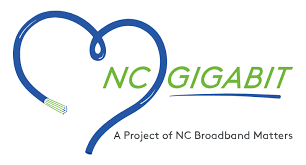Colorado’s Qwest Law: A Decade and a Half Later - Community Broadband Bits Podcast 415

It’s been 15 years since Colorado passed SB 152, the state law intended to restrict communities from building and managing their own broadband networks. A great deal has happened since: more than 140 communities have voted to opt out of the law, and networks like Longmont’s NextLight have been success stories in municipal Fiber-to-the-Home (FTTH).
In this episode Christopher talks to Ken Fellman and Geoff Wilson. Ken and Geoff were at the heart of the story back in 2005. They describe how Qwest (now CenturyLink) along with Comcast used legislative allies to introduce the anti-local authority bill aimed at protecting their profits. They share how the monopoly Internet Service Provider’s (ISP) lobbyists helped push two false narratives that we’ve seen many times before: that the bill sought to “level the playing field” so that private companies could compete with municipally run networks, and that SB152 “protected” Coloradoans from irresponsible local governments.
Christopher, Ken, and Geoff unpack the nuance of such arguments, which monopoly ISPs have used time and time again around the country, that place prohibitive burdens on local actors. They also cover developments over the last decade and a half, and talk about how while SB 152 had a negative impact on the development of municipal networks and broadband infrastructure in the short-term, we might consider how the long-term has shown how so many Colorado communities were compelled to action.
We’ve covered Colorado’s SB 152 a number of times in the past. Recently, the first phase of middle-mile network Project Thor turned on, introducing redundancy and bringing cost savings with it. Glenwood Springs, the first community to opt out, is in the process of extended its own FTTH network citywide.
This show is 60 minutes long and can be played on this page or via Apple Podcasts or the tool of your choice using this feed.
Transcript below.
We want your feedback and suggestions for the show-please e-mail us or leave a comment below.
Listen to other episodes here or view all episodes in our index. See other podcasts from the Institute for Local Self-Reliance here.
Thanks to Arne Huseby for the music. The song is Warm Duck Shuffle and is licensed under a Creative Commons Attribution (3.0) license.


 Jane's decades of experience at the federal, state, and local levels make her the go-to person to provide content for this episode, "North Carolina's unique broadband history and lessons for moving forward." She and Christopher discuss how the state has become a leader in science and technology, including the state's restrictive law limiting local authority. Lastly, Jane makes recommendations for ways to bring high-quality Internet access to the rural areas where people are still struggling to connect. The conversation offers insight into North Carolina's triumphs and challenges in the effort to lift up its citizens.
Jane's decades of experience at the federal, state, and local levels make her the go-to person to provide content for this episode, "North Carolina's unique broadband history and lessons for moving forward." She and Christopher discuss how the state has become a leader in science and technology, including the state's restrictive law limiting local authority. Lastly, Jane makes recommendations for ways to bring high-quality Internet access to the rural areas where people are still struggling to connect. The conversation offers insight into North Carolina's triumphs and challenges in the effort to lift up its citizens.